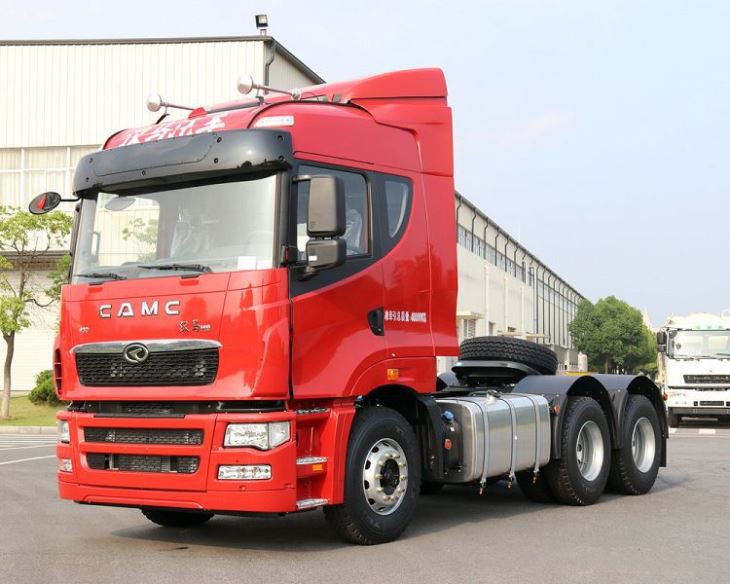Everything You Need to Know About Distributor Asphalt

Introduction
Asphalt is an essential material used extensively in road construction, parking lots, sport surfaces, and more. The role of a distributor asphalt is crucial in this process. Understanding what distributor asphalt is, how it works, and its benefits can help pave the way for successful projects. This article will provide a comprehensive guide to distributor asphalt, covering its types, features, and practical applications, along with tips for choosing the right distributor and answering common questions.
What is Distributor Asphalt?
Distributor asphalt refers to the equipment used to spread liquid asphalt on various surfaces during road construction or maintenance. The equipment can deliver precise amounts of asphalt, allowing for an even and consistent application that enhances the durability of the road surface. This equipment is often used for tack coats, chip seals, and surface treatments.
Types of Distributor Asphalt
1. Mobile Asphalt Distributors
Mobile asphalt distributors are versatile machines that can easily be transported to different job sites. They are equipped with tanks and spray bars and can operate independently without the need for additional vehicles.
2. Trailer-Mounted Asphalt Distributors
These distributors are typically towed behind a vehicle. They offer a cost-effective solution for smaller projects or cities with tight budgets, delivering asphalt in smaller quantities.
3. Skid-Steer Mounted Distributors
Skid-steer mounted distributors combine the functionality of asphalt distribution with the agility of skid-steer loaders. These units are best suited for smaller or specialized projects where maneuverability is key.
Key Features of Distributor Asphalt

1. Precise Control
Distributor asphalt machines are designed for precise control over the application rate of asphalt. This control ensures that the correct amount of asphalt is applied to the surface, reducing wastage and improving performance.
2. Heating Capabilities
Many distributors are equipped with heating systems to keep the asphalt at optimal temperatures for application. This feature is essential for ensuring proper adhesion and compaction.
3. Easy Maneuverability
Modern distributors are designed for ease of use. Controls are often intuitive, and many models have features such as auger systems for uniform material distribution, improving overall efficiency.
4. Tank Size
Distributor asphalt units come in various tank sizes to accommodate different project requirements. Larger tanks allow for extended operation without frequent refills, which is beneficial for large projects.
Benefits of Using Distributor Asphalt
1. Improved Efficiency
Using a distributor asphalt ensures that the application of asphalt is performed quickly and efficiently. The precise control allows for minimal disruption to surrounding areas.
2. Cost-Effective
Investing in high-quality distributor asphalt can lead to savings down the line. The reduction in material wastage and improved project timelines directly contribute to lowering overall project costs.
3. Enhanced Surface Quality
Distributor asphalt contributes to higher quality pavement due to consistent layering and better adhesion. The result is a smoother, more durable surface that can withstand heavy traffic.
4. Reduced Environmental Impact
By optimizing asphalt usage and minimizing waste, distributors contribute to a more environmentally friendly construction process. Moreover, many modern asphalt formulations are designed to be recycled.
Choosing the Right Distributor Asphalt
1. Project Requirements
Consider the scope and nature of your project when selecting a distributor. For larger projects, a mobile asphalt distributor may be necessary, while smaller projects may require a trailer-mounted distributor.
2. Budget Constraints

Evaluate the budget available for the project. While it can be tempting to opt for the cheapest option, consider factors like lifespan, efficiency, and maintainability.
3. Brand Reputation
Research different manufacturers and brands of distributor asphalt machinery. Optimal performance, quality, and support after the sale are critical factors to consider.
4. Maintenance and Support
Consider the maintenance requirements and support available for the distributor you are looking to purchase. Reliable service and easy access to replacement parts are essential for minimizing downtime.
Practical Tips for Using Distributor Asphalt
1. Regular Maintenance
Ensure regular maintenance checks on your distributor asphalt to keep it in top condition. This includes checking for leaks, ensuring the heating system is working properly, and maintaining the spray bars.
2. Training for Operators
Invest in training for operators to ensure they understand how to use the distributor asphalt correctly. Proper training can prevent accidents and enhance job efficiency.
3. Weather Considerations
Always check weather conditions before applying asphalt. Ideal conditions include dry weather and temperatures within a specific range to ensure optimal adhesion and compaction.

4. Quality of Materials
Select high-quality asphalt materials for use with your distributor. The success of your project heavily depends on the quality of the asphalt applied.
Real-World Applications of Distributor Asphalt
1. Road Construction
Distributor asphalt is essential in the construction of new roads, ensuring an even spread of asphalt for durable paving solutions.
2. Maintenance Projects
During maintenance projects, distributor asphalt enables quick and effective application of materials like tack coat, which is vital for re-layering old asphalt.
3. Parking Lots
Using distributor asphalt in parking lot construction helps in creating a smooth and durable surface that can handle heavy vehicle loads.
4. Sports Surfaces
Sports surfaces, such as running tracks and tennis courts, benefit significantly from the precision application provided by distributor asphalt. This ensures a consistent playing surface.
Common Misconceptions About Distributor Asphalt
1. Only for Large Projects
Many believe that distributor asphalt is only necessary for large-scale projects. In reality, smaller projects can also benefit from the precision that these machines offer.
2. High Initial Cost
While high-quality distributors may have a higher initial cost, the long-term savings and efficiency they provide can outweigh this expense, making them a wise investment.
3. Complex Operation
Some assume that operating distributor asphalt equipment is complicated. However, many models come with user-friendly controls, making operation easier for trained personnel.
FAQs About Distributor Asphalt
1. What is the best temperature to apply asphalt using a distributor?
Asphalt is typically best applied at temperatures between 275°F to 350°F. Conditions outside this range can affect the asphalt’s performance.
2. How do I maintain my asphalt distributor?
Regularly check for leaks, clean the spray bars after use, and ensure the heating system is functioning properly. Consulting the manufacturer’s maintenance guidelines is also crucial.
3. Can I use distributor asphalt for residential projects?
Yes, distributor asphalt can be effectively used for residential projects such as driveways or small parking spaces where precision and efficiency are needed.
4. How long does the pavement needs to cure after using a distributor?
The curing time for asphalt can vary, but generally, it can take anywhere from 24 to 48 hours for foot traffic and up to a week before heavy vehicles can access the surface.
5. What are some tips for applying asphalt in colder weather?
To apply asphalt in colder weather, warm the asphalt before use, ensure that the surface is heated well, and consider using insulated blankets to maintain temperature during curing.
6. How does distributor asphalt impact road durability?
By ensuring a consistent and even application, distributor asphalt enhances the bonding between layers of asphalt, leading to longer-lasting and more durable road surfaces.
